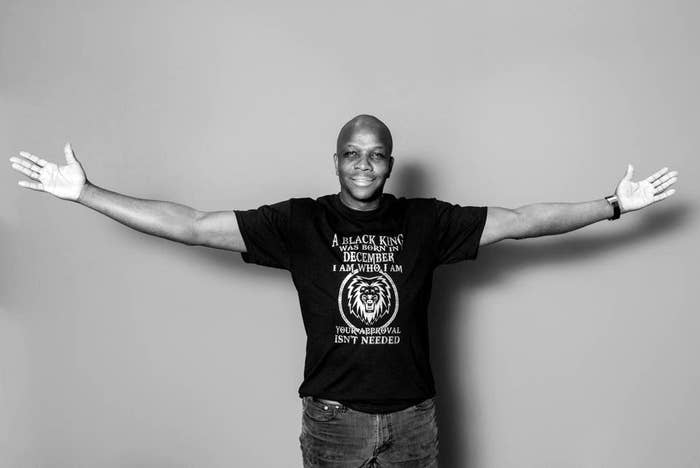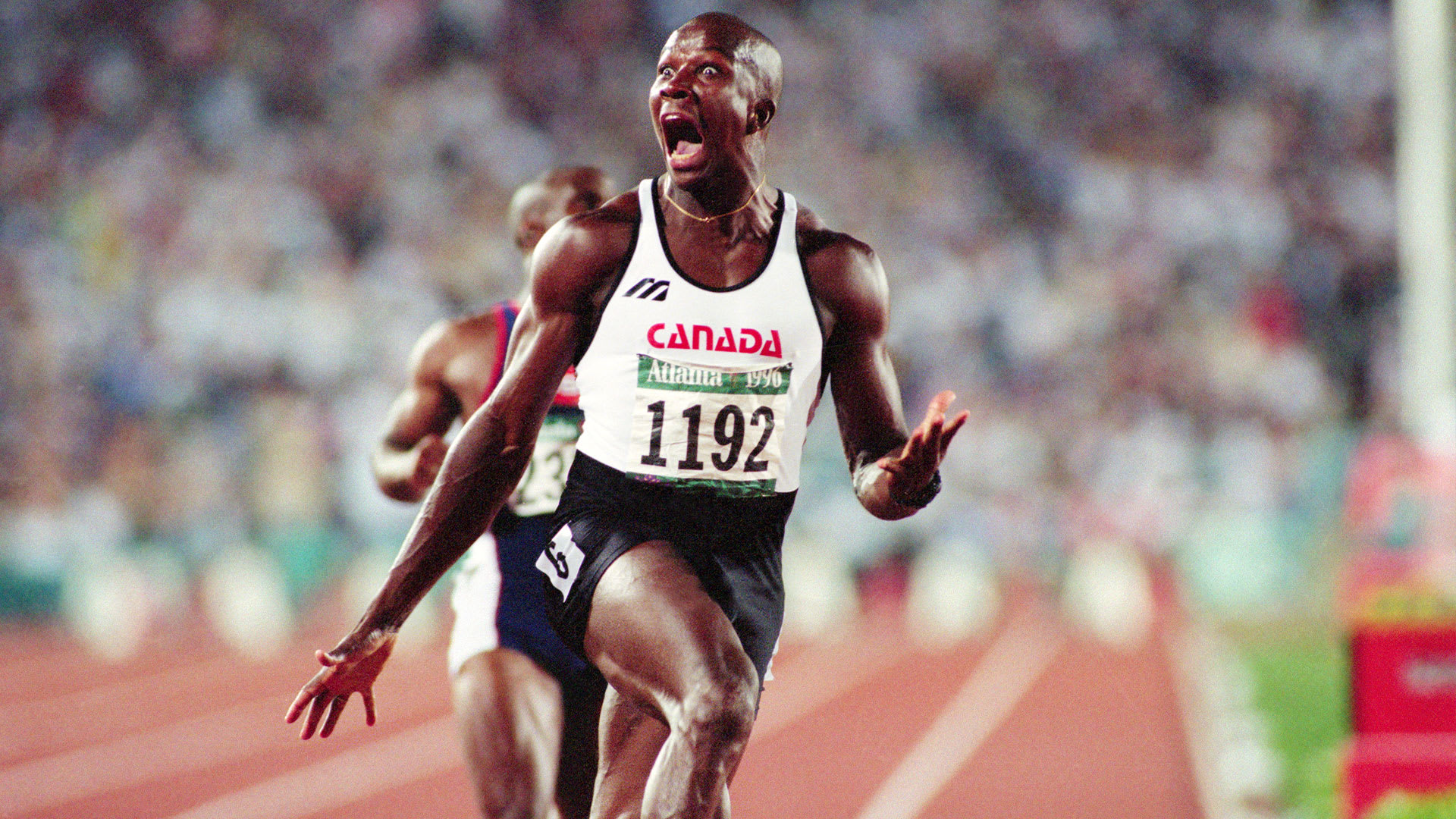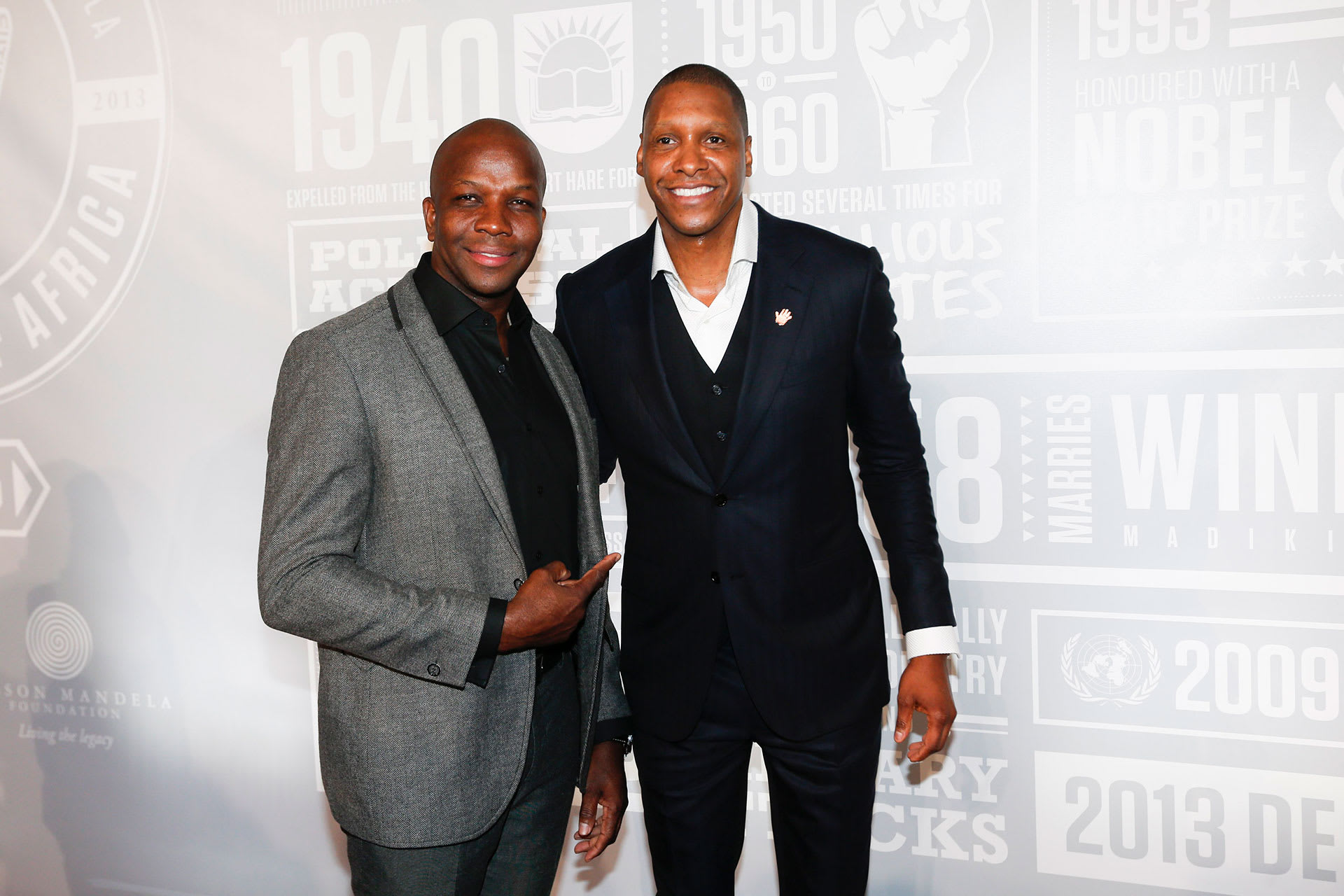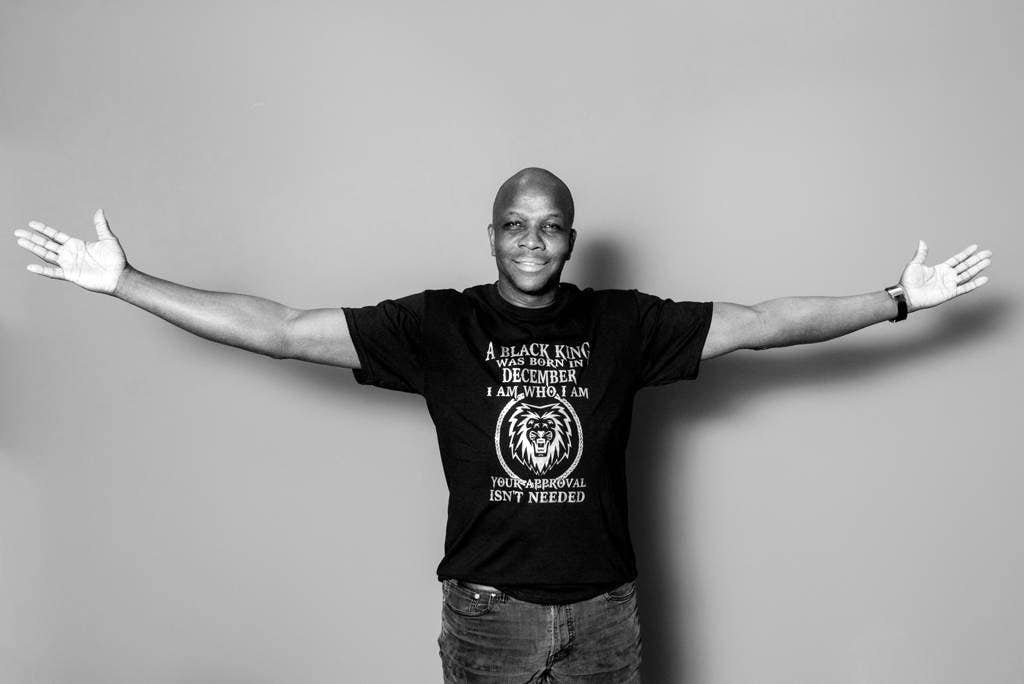
Donovan Bailey still looks ready to take on all comers on the track—from the chin up, he jokes. Sitting in the comforts of his own home and chatting over Zoom, the first man to be 100m Olympic champion, world champion, and world-record holder simultaneously has the self-awareness to recognize his body isn’t what it used to be.
But there is a larger message Bailey is sending that goes beyond possessing facial features that belie his age. Above that chin and in between the ears is a man who possesses tremendous confidence, intellect, and fortitude that drives him to be first to the finish line in any path he chooses. Once a champion always a champion, and the former superstar sprinter has found success as a commentator, real estate investor, philanthropist—among other things—and hopes to extend that to author with a book set to release this year commemorating the 25-year anniversary of his dream 9.84 second sprint in Atlanta.
“My parents were extremely strong—my mom was a strong Black woman who was always the pillar of the household, my dad was a great, strong leader,” Bailey said. “One of the things that was instilled in me from when I was very young is 1) to think limitless, and 2) I’m capable of doing any single thing that I want to do in the world.
“Our culture is a strong believer in academics, obviously the use of your intellect is very important, but I think what’s even better is that when you grow up in a place where you see people that look like you around you, it essentially means you’re not reaching if you say you want to be a lawyer, doctor, prime minister, ambassador, rocket scientist, whatever.”
“When I was coming up the ranks there was absolutely a lot of blowback. A lot of people wondering where I was coming from, what I was doing. Not only was I winning, I was also quite outspoken."
When Bailey refers to culture, he is referring to the first 13 years of his life in Manchester, Jamaica. He epitomizes immigrant excellence, and the opportunity to see himself in other successful people beginning with his parents has had a powerful influence on what he has gone on to achieve. Bailey attended boarding school there and spent a lot of time with students from a variety of backgrounds. Moving to Oakville, Ontario as a teenager, he wasn’t intimidated by now representing a visible minority because he learned at a very young age that he belonged in every room he walked into.

His athletic prowess helped, too, dominating on the track even though basketball was his biggest passion. In fact, when Bailey attended Sheridan College for Business Administration, he played for the school's team, the Bruins, as a 6-foot-1 small forward, though he’d be listed at 6-foot-6 in lineups. Little did opponents know that he possessed a 48-inch vertical.
“I’ve seen laughter when I step on the court and someone’s like, ‘Oh my god, this guy’s not 6-foot-6,’” Bailey said. “But I think the first alley-oop dunk over that guy’s face brought them down to earth really quickly—if I pull a drop-step on them on the baseline or if I have a breakaway dunk.”
Catching people off guard and persevering past doubters has long been a strength of Bailey’s, his most notable trailblazing move coming when he transitioned from a glorified financial investment telemarketer on Bay Street to winning the 100m gold medal in record fashion in Atlanta. When success is made to look so easy, the hard yards can often be forgotten. Traditional track athletes made an impression in high school, attracted scholarships from America, possibly a national team program from there, and eventually the national team if they were good enough.
"I think the athlete today is way more powerful than I ever was."
Bailey didn’t want to go far away from home and his father didn’t believe it was in his best interests, either, which is why he went to Sheridan. After Bailey saw those he competed with and beat in high school on the verge of competing for Canada, the combination of that and growing restless in a 9-to-5 office job meant it was time to find a new path.
“When I was coming up the ranks there was absolutely a lot of blowback,” Bailey said. “A lot of people wondering where I was coming from, what I was doing. Not only was I winning, I was also quite outspoken. I wasn’t afraid because I am my own boss.
“I wasn’t dependent upon government programs supporting me so, coming in, there was absolutely resentment from the hierarchy. I wasn’t worried about resentment from other athletes because that’s what you do; if you’re beating someone you’re gonna be like, ‘I don’t like that guy.’”
There was plenty to overcome even when Bailey got to the pinnacle of competing at the Olympics. Prior to Atlanta, he tore his left adductor in Nice, France while competing, which left him with less than two weeks to recover from something that was supposed to cost him a month. While he was getting the best possible treatment, his own agent was convinced Bailey wouldn’t be good enough to win the gold and was brave enough to say it out loud. Bailey fired him. Soon after, he received backlash for bringing light to racial issues in Canada as well. A bombing at Centennial Opening Park that killed one person the morning of the 100m Finals left Bailey with hardly any sleep, but the entire storm of events that could have derailed his hopes and dreams were no match for his mind.
“My focus, when I have blinders on, there’s absolutely nothing and no one that can get between me and the goal that I have,” Bailey said. “I truly believed that I had done all the work, I had prepared myself and this was gonna be my moment and nothing was gonna get in the way and I say that to each and every person: you can’t be a journalist if you don’t expect to have anyone criticize your work. If you’re listening to chirping on the Internet from anybody, just be somebody who isn’t in the public.
“There’s always gonna be a bully in a basement sending a tweet making absolutely no sense—you probably shouldn’t listen to that voice. The thing I absolutely love about athletes today is everyone has a platform, a smartphone, a camera, an Instagram account, some kind of social media account, so I think the athlete today is way more powerful than I ever was.”

The power an athlete’s platform possesses to do good has never been more on display than when athletes—particularly from the WNBA and NBA—used their voice to fight against social injustice. From striking and not playing playoff games to WNBA players wearing faux bullet holes in shirts, the players made it perfectly clear where they stood. Bailey considers Masai Ujiri—President of the Toronto Raptors—a good friend and was proud to see the way the Raptors emerged as leaders in the fight. While he saw those athletes express themselves in such a powerful way, he couldn’t help but wish track athletes had that type of power.
And while Bailey may not have had a platform in his heyday to voice himself to the same extent, the success he’s found both on the track and away from it has afforded him the opportunity to give back to his community by mentoring people and giving those in need as much of his time as possible.
Besides running his own company Bailey Inc. and the Bailey Foundation, which provides youth mentorship and leadership as well as helping fund prostate cancer and Alzheimer’s research, he's worked with the Black Opportunity Fund, Big Brothers Big Sisters of Canada, and only very recently stepped away from a chairman role with the BlackNorth Initiative—a program to help members of the Black community make it in corporate Canada—because of extensive 2021 commitments to the Olympics.
With what’s between the ears and above the chin, Bailey has gone from creating lanes for himself to busting down the door for others.

